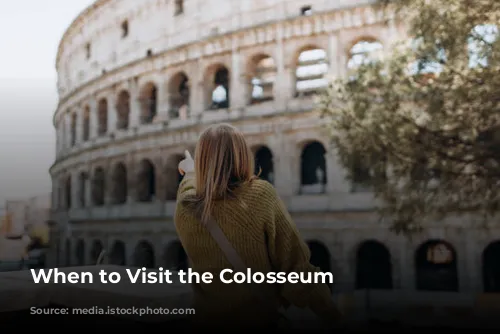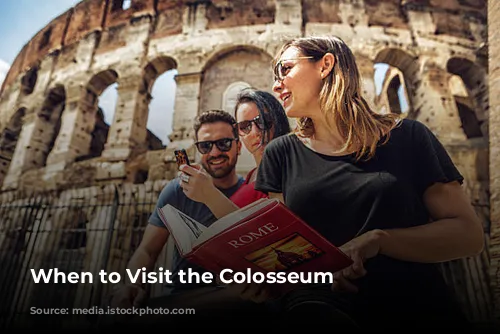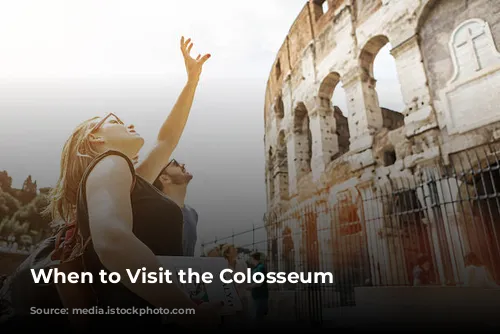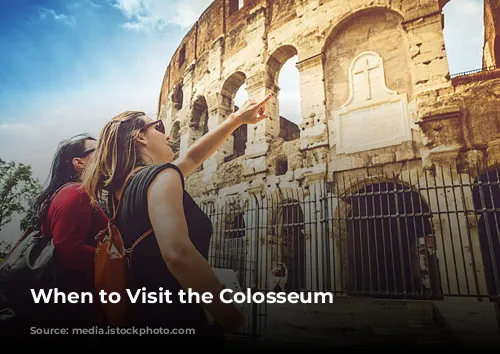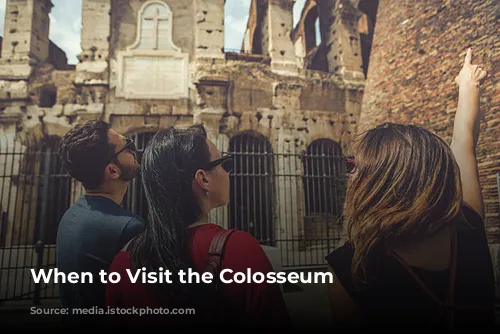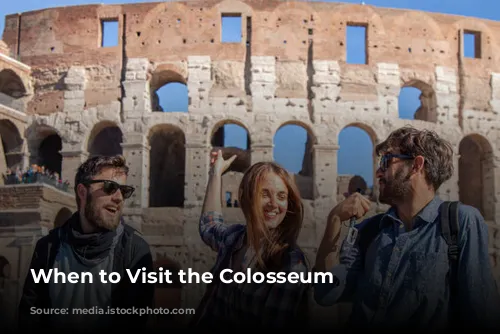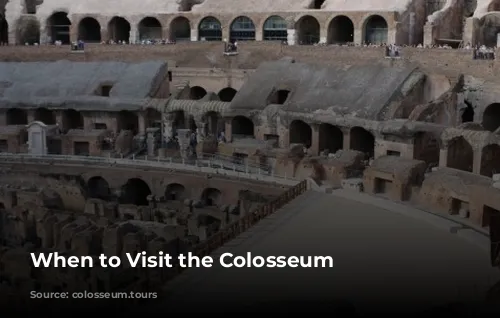The Colosseum’s opening hours vary depending on the time of year. From January 2nd to February 15th, it’s open from 8:30 AM to 3:30 PM. During February 16th to March 15th, it extends its hours by an hour, closing at 4:00 PM. From March 16th to the last Saturday of March, it closes at 4:30 PM. The summer months, from the last Sunday of March to August 31st, offer the longest hours, closing at 6:15 PM. September and October have similar hours, closing at 6:00 PM and 5:30 PM, respectively. Finally, from the last Sunday of October to December 31st, it returns to the initial schedule, closing at 3:30 PM.
Tip: Planning your visit during the shoulder seasons (spring and autumn) can offer a balance between pleasant weather and fewer crowds.
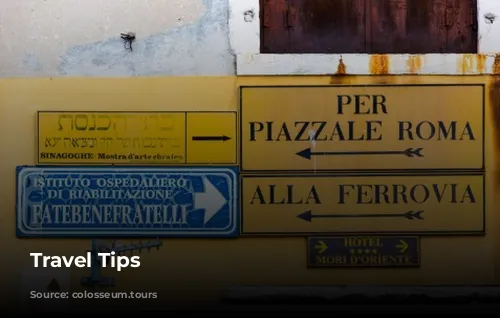
What Not to Bring to the Colosseum
When visiting the Colosseum, be mindful of a few restrictions. Large bags, backpacks, and wheeled/roller bags are prohibited. The same goes for glass containers/bottles and any type of weapon, including pocket knives. Aerosol sprays are also not allowed.
Remember: Following these guidelines helps ensure a safe and enjoyable experience for everyone.
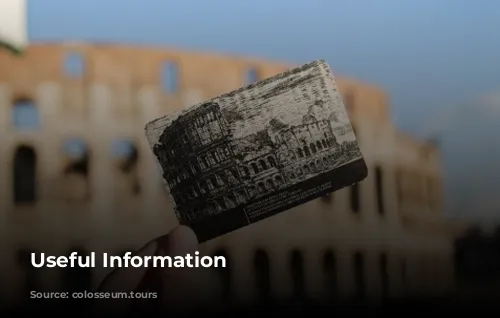
Booking Your Colosseum Visit
Booking tickets in advance for the Colosseum is highly recommended to avoid long queues and guarantee your entry into this iconic attraction. By purchasing tickets beforehand, you can secure your preferred date and time slot, making your visit smoother and more efficient. Additionally, booking in advance often provides skip-the-line access, allowing you to bypass the lines and maximize your time exploring the Colosseum and its surroundings.
Bonus: Advanced booking can make your visit to one of Rome’s most renowned landmarks truly stress-free.
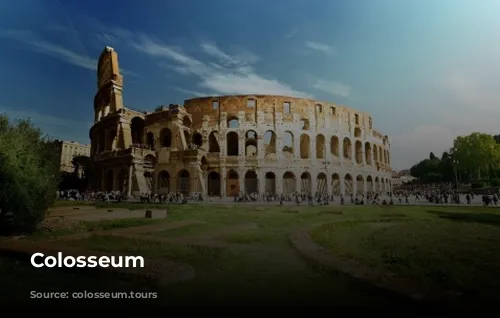
The Colosseum’s History and Design
The Colosseum, a magnificent amphitheater in Rome, boasts a history deeply rooted in ancient times. It was built around 70-80 AD by Emperor Vespasian of the Flavian dynasty. This impressive structure served as a venue for various events, including gladiator fights, animal hunts, and mock naval battles. It had a remarkable capacity, holding up to 80,000 spectators.
The Colosseum’s design reflects the genius of ancient Roman engineering. It’s a large oval-shaped structure with four levels, reaching a height of around 48 meters. Built using limestone, concrete, and bricks, it features three tiers of arches adorned with different types of columns. The lower tier showcases Doric columns, the middle tier features Ionic columns, and the upper tier boasts Corinthian columns. With ramps, stairs, and tunnels, the Colosseum facilitated the easy movement of people and animals during events. This clever design ensured efficient entry and exit for spectators and allowed for seamless staging of shows, highlighting the Romans’ architectural expertise.
Tip: Experience the Colosseum’s magic by visiting it at night. The majestic structure illuminated against the dark sky creates a truly enchanting and captivating sight.
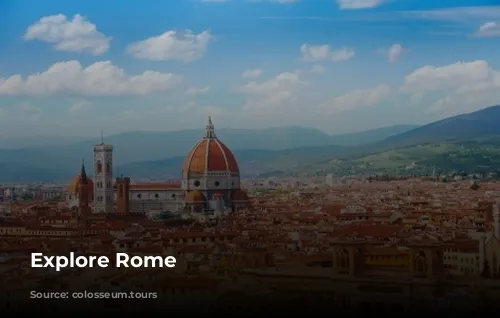
Rome Beyond the Colosseum
While exploring the Colosseum, make sure you experience other exciting aspects of the Eternal City.
Roman Cuisine
Enjoy authentic Roman cuisine while in Rome. Despite the city’s upscale dining options, nothing beats the flavor of street food. Seek out spots frequented by locals, a sure sign of delicious and high-quality fare.
Tip: Many restaurants in Rome include a service charge in the bill to compensate the waitstaff. However, if you’re particularly pleased with the service or if the bill doesn’t include a service charge, it’s customary to leave a 10% tip.
Comfortable Footwear
Wear comfortable shoes in Rome. With countless attractions to discover on foot, comfortable footwear ensures you can fully enjoy the city’s wonders without discomfort.
Small Group Tour
Join a small group tour led by a friendly and knowledgeable guide to explore the highlights of Ancient Rome.
Discover the Colosseum: Begin your tour at the impressive stadium, learning about its architecture and the Romans’ passion for games. Walk through the entrance and onto the arena floor, where gladiators once battled.
Explore Palatine Hill: Venture to the oldest part of Rome, Palatine Hill, where emperors once resided in grand homes. Wander among the ruins, enjoying the serene surroundings and breathtaking views.
Delve into the Roman Forum: Descent into the Roman Forum, walking along ancient roads and marveling at temples, offices, and the senate building.
Benefits of a Guided Tour: Avoid waiting in line, gain insights into history, and marvel at the Colosseum and the Ancient City with the guidance of a knowledgeable local tour guide.
Discover the Rich History of Ancient Rome
Experience the grandeur of the Colosseum as you admire its impressive structure and learn about its past, including damage from earthquakes.
Then, climb Palatine Hill to witness amazing views and visit old ruins like the House of Augustus.
Delve into the Roman Forum, once bustling with political activity and speeches. Marvel at architectural wonders like the Temple of Romulus.
Throughout the tour, listen to captivating stories that offer fascinating insights into the history of Rome.
Personalized and Unforgettable Experience
A friendly and professional tour guide by your side will tailor your tour to your preferences. Explore the highlights of the Colosseum and Ancient Rome according to your interests and needs.
Bonus: Booking this tour ensures you bypass the crowds and enjoy a private entrance to the magnificent Colosseum.
Meet Your Guide at Trajan’s Column
After meeting your guide at Trajan’s Column, you’ll take a short walk through the Imperial Forum before entering the famous Roman Forum. Once you’re in the archaeological site, your private guide will point out the most famous monuments, as well as the hidden gems that are often missed in larger tours.
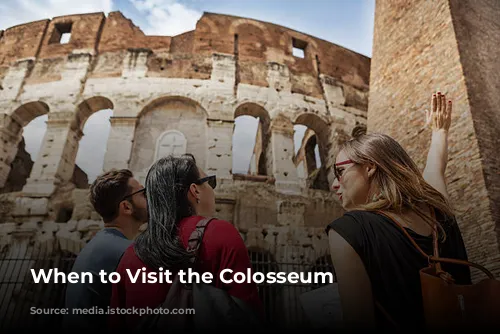
The Vatican City
Visiting the Vatican in Rome is a must for its rich historical and spiritual significance. Housing the Pope and the Roman Catholic Church, it’s a center of global reverence.
Vatican Museums
The Vatican Museums showcase a vast array of artistic treasures, including iconic works by Michelangelo and Raphael. The Sistine Chapel’s mesmerizing frescoes, particularly Michelangelo’s masterpiece on its ceiling, leave visitors spellbound.
St. Peter’s Basilica
St. Peter’s Basilica, with its awe-inspiring architecture and religious significance, is equally captivating.
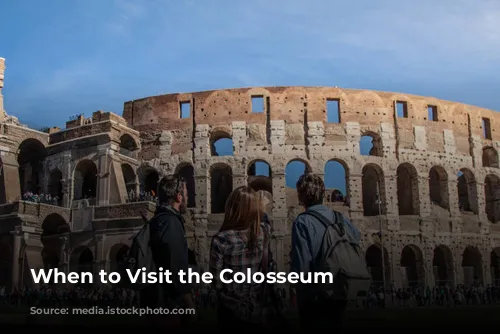
Charming Neighborhoods
Nestled in the heart of Rome, neighborhoods like Trastevere and Monti offer visitors an authentic glimpse into the city’s vibrant life and rich history.
Trastevere
Trastevere, with its narrow cobblestone streets and colorful buildings, exudes a bohemian charm. This area is renowned for its bustling piazzas, lively trattorias, and lively nightlife.
Monti
Monti, on the other hand, presents a more eclectic ambiance, blending ancient ruins with trendy boutiques and artisanal shops. Its labyrinthine alleys lead to hidden gems, quaint cafes, and artisan workshops, making it a haven for artists and creatives.
Both neighborhoods boast picturesque squares where locals gather, creating a lively atmosphere perfect for leisurely strolls.
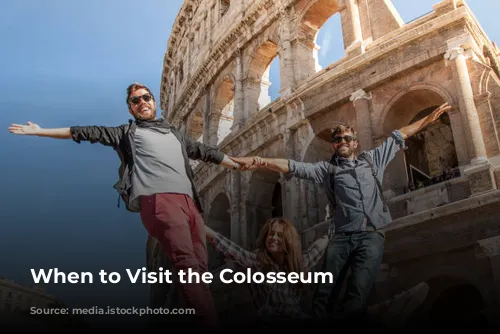
Free Museum Entry
Every first Sunday of the month in Rome, entry to state-owned museums, galleries, parks, and some archaeological sites are free. Since it’s the busiest day of the month, consider arriving early.
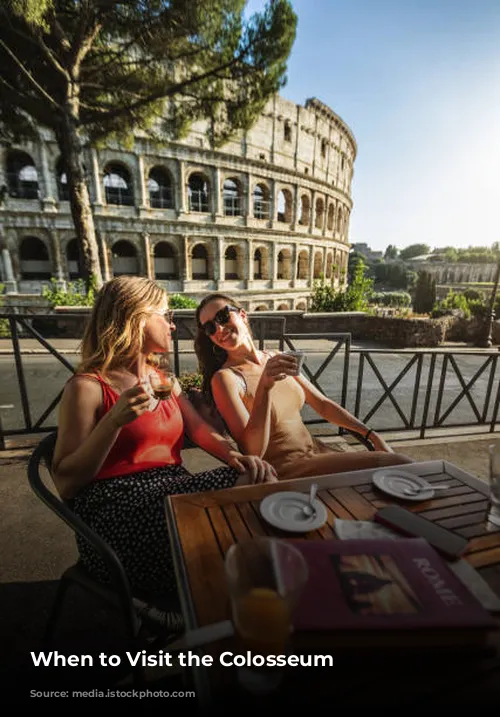
The Colosseum – A Symbol of Ancient Rome
The Colosseum is the most visited and surely the most popular monument in Rome, in the whole of Italy in fact. It is the icon of the ancient Roman Empire and of the modern city today, much like the Eiffel Tower in Paris. In its day, it was a symbol of prestige and the power, might, and (savagery) of the ancient Romans.
